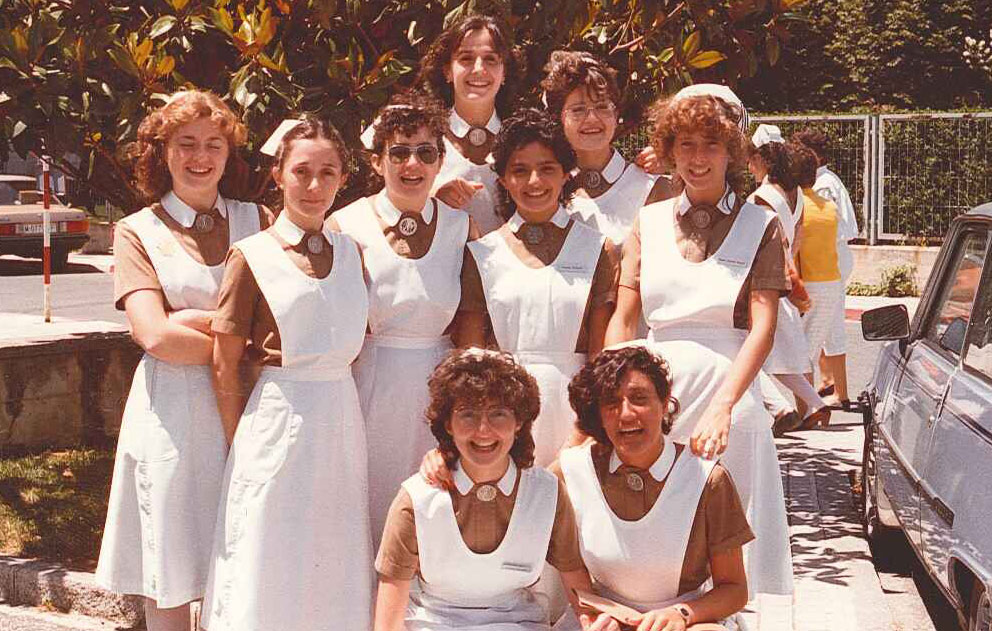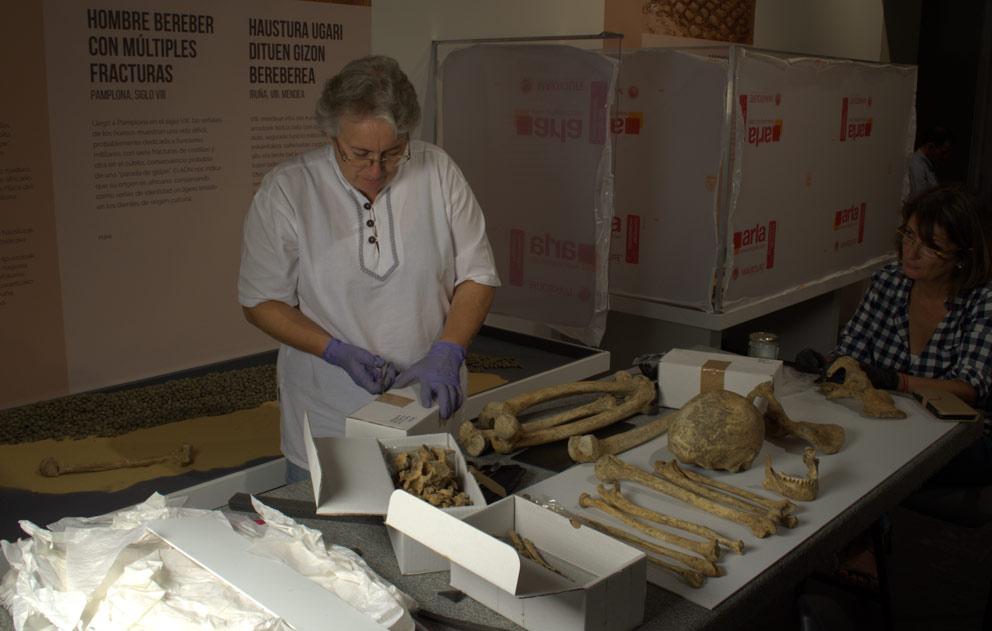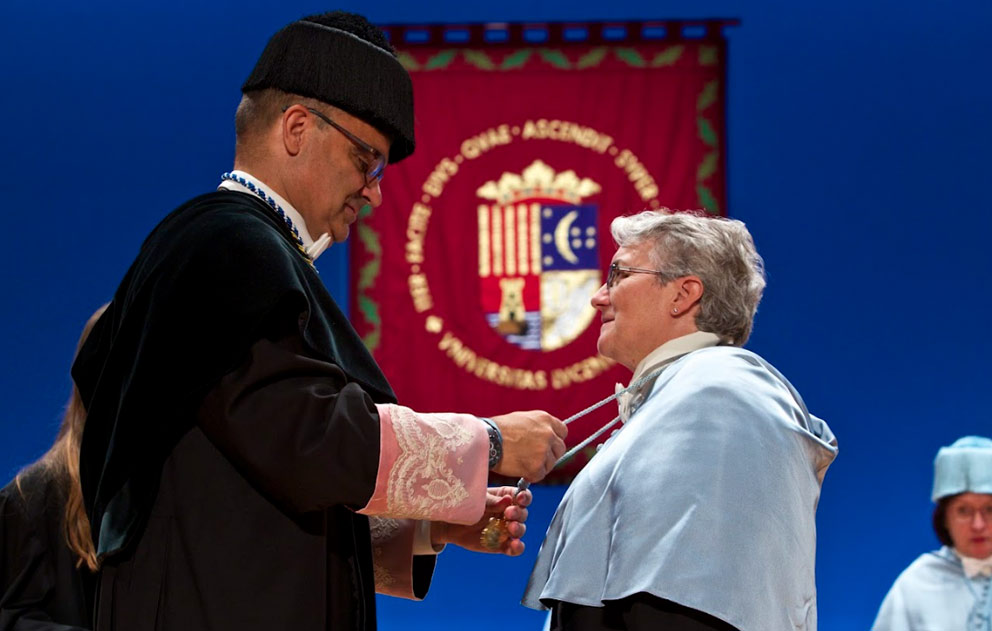Former student of the University of Navarra, we review with her her path through the campus of Pamplona, her first steps in Nursing and her change to the world of Archaeology.
What do you remember from your time at School Nursing?
I have many memories of my time at the School of Nursing - that's how it was before I went to Degree- and most of them are very gratifying. Our graduating class - 1981 to 1983 - consisted of 200 female students. At that time there were only women who entered our training with a great desire to learn. We lived very intensely the three courses, mixed between theoretical and practical classes, many hours dedicated to train us, so that at the end we would be able to work in any field of nursing.
I have fond memories of the faculty , of two people in particular. The first one was Ana Irujo, my Anatomy teacher, a subject that was extremely complicated for me, with so many names and so many details that we had to assimilate. I know that without her support and trust I would not have been able to pass it, it's funny, because now I live most of my daily life surrounded by bones. The second is Inmaculada Serrano, one of my teachers at Materno Infantil, from whom I received great support when I chose to train as a midwife. I do not want to forget who was chaplain of the School, or at least one of them, Mr. Miguel Angel Monge, who supported me when I wanted to access the Official School of Midwives of Santa Cristina in Madrid, where he had previously worked.

As anecdotes, unforgettable was the theater we staged under the direction of Ljerka Brajnovic, Los extremeños se tocan. I was only the prompter, the artistic vein is not very developed, but we enjoyed a lot, we shared very good times and we were aware of the good time we made the public spend, not only when we represented it, but when it was broadcast by the TV channel of the CUN ... unforgettable.
What did studying at the University of Navarra mean to you?
I believe that it not only meant, but still means, a lot. Having been trained as a professional, with the scientific foundation essential for the practice of Nursing and with the continuous concern to keep updated. It is essential to know that Science advances, and the Scientific Evidence available is mutable.

Was it always clear to you that you wanted to be a nurse? Where did your vocation come from?
As far back as I can remember, when I went to high school at María Inmaculada, I wanted to be a nurse. It was complicated because I was not a good student, nor did my abilities allow me to approve without studying for many hours. With more or less perseverance, and with many difficulties, I managed to pass a BUP of pure sciences. I was lucky enough to be admitted to the School of Nursing, after a entrance examination, since at that time the university entrance exam was not necessary. When I started at the School, after the first year, which is always more complex due to the subject of general subjects taught, every day I enjoyed learning, the colleagues, the nurses who trained us, the many hours of practice and the contact with the people we attended to.
I learned the importance of caring for and accompanying people with more or less serious pathologies and those who were at the end of their lives. The most complicated thing to manage, in those years of training, was the death of children, and the limitations to achieve their recovery. In addition to the accompaniment of the families in the face of these losses.



